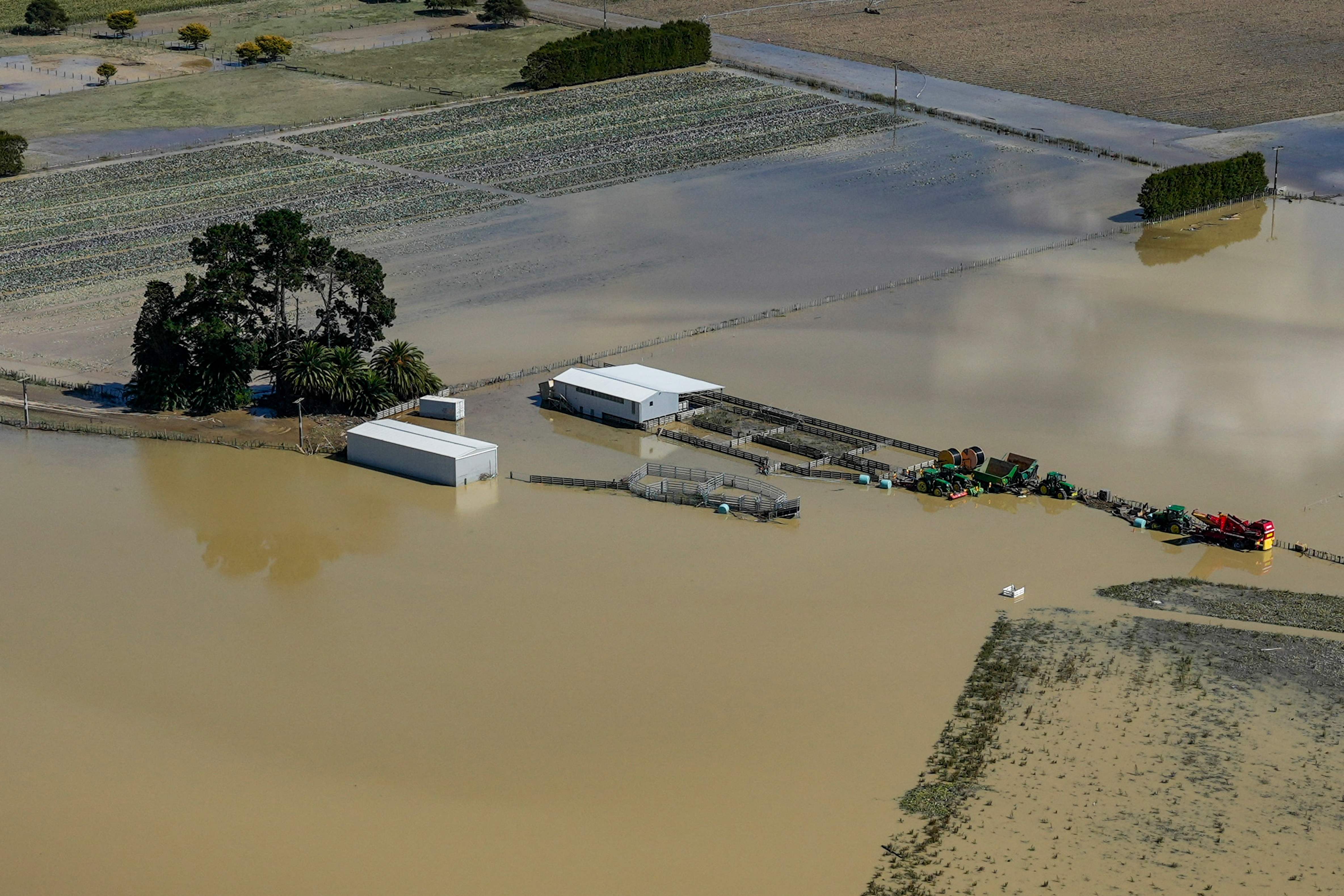Climate change made New Zealand’s Cyclone Gabrielle flooding ‘four times more common’
“With the world getting even warmer, we will see more and more of events like this,” experts warn
Your support helps us to tell the story
From reproductive rights to climate change to Big Tech, The Independent is on the ground when the story is developing. Whether it's investigating the financials of Elon Musk's pro-Trump PAC or producing our latest documentary, 'The A Word', which shines a light on the American women fighting for reproductive rights, we know how important it is to parse out the facts from the messaging.
At such a critical moment in US history, we need reporters on the ground. Your donation allows us to keep sending journalists to speak to both sides of the story.
The Independent is trusted by Americans across the entire political spectrum. And unlike many other quality news outlets, we choose not to lock Americans out of our reporting and analysis with paywalls. We believe quality journalism should be available to everyone, paid for by those who can afford it.
Your support makes all the difference.Climate crisis “likely” played a role in exacerbating the heavy rainfall events that flooded northeast New Zealand following Cyclone Gabrielle, making such incidents “four times more common” in the region, a new study has found.
In February, Cyclone Gabrielle caused extreme rain that fell over two days, causing extensive damage and costing billions of dollars in economic losses in New Zealand, making it one of the deadliest and costliest cyclones to hit the region on record.
Now, a new research by the World Weather Attribution (WWA), released on Tuesday, shows that such heavy rainfall events have become four times more common in the region, with extreme rainfall events now dropping 30 per cent more rain than before.
The study, carried out by an international team of climate scientists, finds that the increase in extreme rainfall is “likely” due to climate crisis. However, they cannot yet quantify the precise influence of the human-induced global warming.
Using historical weather station data, the report suggests that the two-day maximum rainfall over the region is now about 30 per cent more intense than it might have been without the influence of human greenhouse gas emissions.
Such heavy rainfall events also now happen about four times more often than they did previously; even so, rainfall this heavy is still rare, with roughly a 3 per cent chance or less of happening each year in any location.
“Weather observations in the region show exactly what we expect from physics, which is that a warmer atmosphere accumulates more water and increases the frequency and intensity of downpours,” says Dr Friederike Otto, co-lead of WWA and senior lecturer in Climate Science at Grantham Institute.
“And with the world getting even warmer we will see more and more of events like this. Reducing exposure and vulnerability of populations in flood-prone areas is thus an urgent priority.”
While the report acknowledges large uncertainties in these estimates due to the short period covered by the data and high variability in the region, it warns that urgent action is needed to reduce the exposure and vulnerability of communities to future flooding.
The study was conducted by 23 researchers from universities and meteorological agencies in Aotearoa New Zealand, France, Germany, the Netherlands, the United Kingdom, and the US.
“A rapid assessment of the role of climate change in this flood event is a first for Aotearoa New Zealand, and tries to address one of the questions being regularly raised about whether this summer is the country’s new reality,” said Sam Dean, principal scientist at the National Institute of Water and Atmospheric Research and one of the scientists who worked on this study.

New Zealand has good forecasting capabilities and channels for warning about extreme rainfall, the report notes. Still, the flooding caused significant damage, economic cost, and loss of life, which can be linked to factors such as reliance on flood protection systems and infrastructure that are not built to withstand such extreme flood events.
While the report does not conclusively blame the climate crisis as the main driver behind flooding, as scientists explain there were several factors that led to the extreme weather event, it warns that heavier rainfall is becoming more likely as the planet continues to warm.
The report also notes that, for a climate 2C warmer than in preindustrial times, models suggest that rainfall intensity will slightly increase, although uncertainty remains large.
The scientists involved in the study suggest that future efforts to reduce vulnerability should update infrastructure to be built for the future climate, improve impact forecasting, and strengthen social connectedness, knowledge, skills, and awareness of natural hazards to increase resilience of communities.
“While there is a mixed bag of results from this particular rapid analysis, the study contributes to a wealth of evidence that here in Aotearoa New Zealand, adapting to a changing flood risk now and for the foreseeable future is one of the greatest challenges we face.”
Cyclone Gabrielle left more than 200,000 houses without electricity and at least 11 people died in the flooding in New Zealand, with billions of dollars of estimated economic losses. Some of the regions hit by the flooding had witnessed widespread rainfall and flooding only two weeks earlier.




Join our commenting forum
Join thought-provoking conversations, follow other Independent readers and see their replies
Comments